Rethinking accessibility to mental healthcare by gamifying psychotherapy through video game
Social tool
Design research
Digital experience
YEAR:
2021
COLLABORATORS:
Sound design ︎︎︎ Maël Hénaff
In the last 20 years, the number of people who have been diagnosed with depression has more than quadrupled. In fact it has not stopped increasing since its universal categorisation as a mental health disorder in 1980. But does this mean we are more depressed than before?

Context
Currently, our mental healthcare system performs on a one-dimensional spectrum, which splits individuals according to binary classification guidelines, falling into a category of either mental well-being or disorder. However, recent research shows that the state of languishing, a common feeling of stagnation and emptiness, exists as the neglected middle child, and constitutes a major risk factor in developing depression in the short term.

THE AVOIDER

THE PLEASER

THE MOLDER

THE CRITIC
Concept
This project is a call to rethink our current mental healthcare model by gamifying psychotherapeutic methods,
enabling its widespread access based on a preventative approach. Horizon enables you to meet your selves: a
method translated from Voice Dialogue used in psychotherapy to gain greater self-awareness. From the belief that
each of us is made up of many selves, identifying with some and rejecting others, the technique invites you to
engage with your inner voices in a playful and unique manner. Within an immersive environment, you will be given
the ability to shift between different parts of your inner-selves' points of view, allowing you to interact with and
unfold their perspectives in order to better understand their place and imperative.
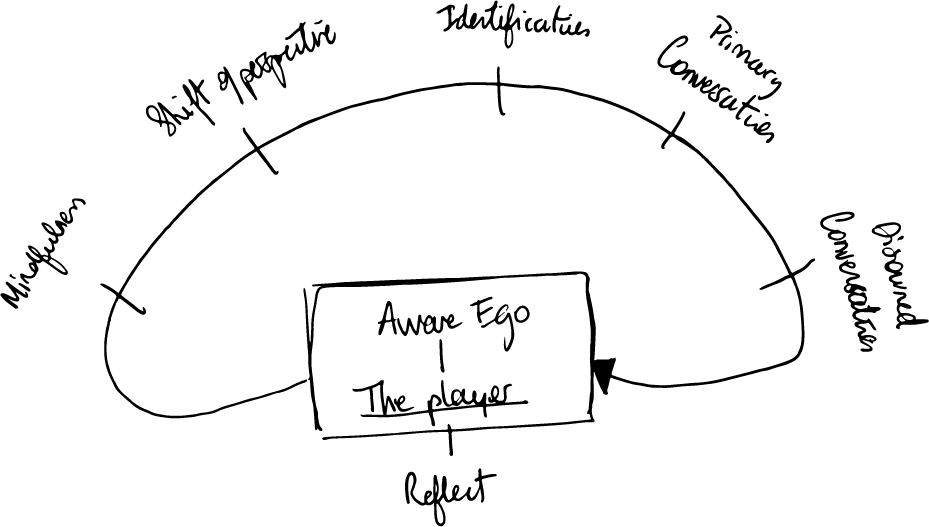
The loaded aspect of dealing with our unhappiness is part of the reason behind why we don’t want to face it. Distracting the player from this uncomfortable facet within a game invites users to understand that it doesn’t necessarily have to be a painful process. Identifying through a third person avatar, the player externalises their emotions within the platform, allowing a first step at removing themselves from their problems.

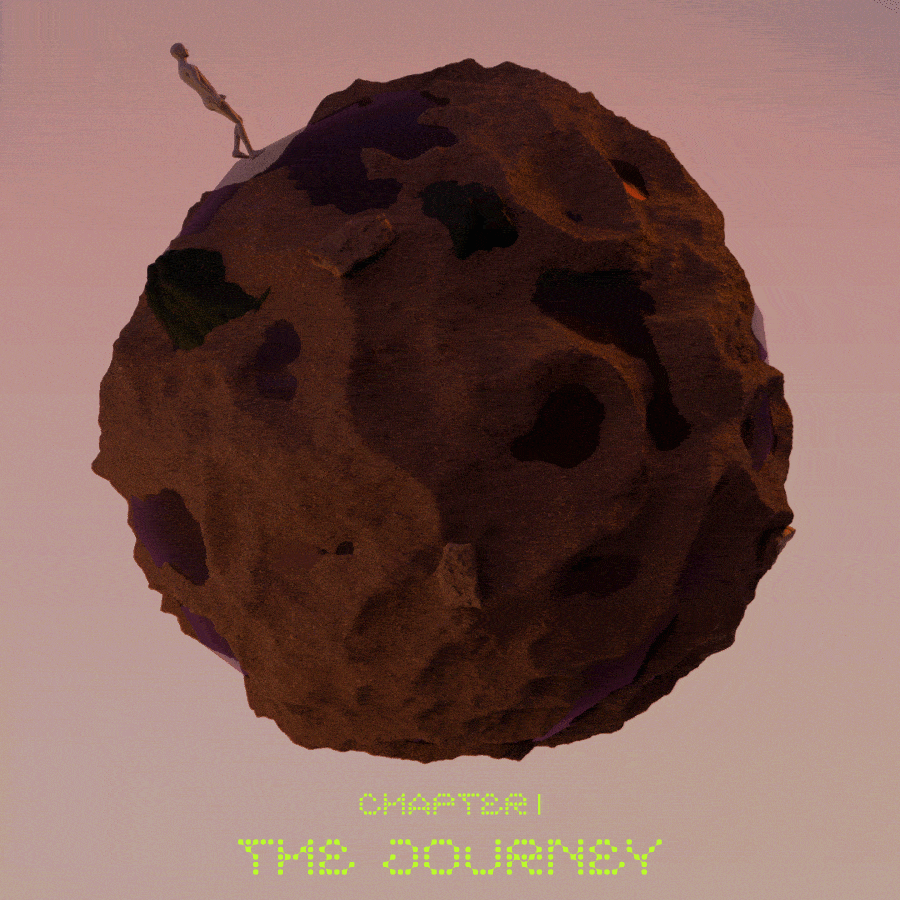
The game starts with The Journey, where the player is introduced to the psychotherapeutic method called Voice Dialogue via a narrated voice over, whilst being immersed in the mindfulness conducive environment of the game.
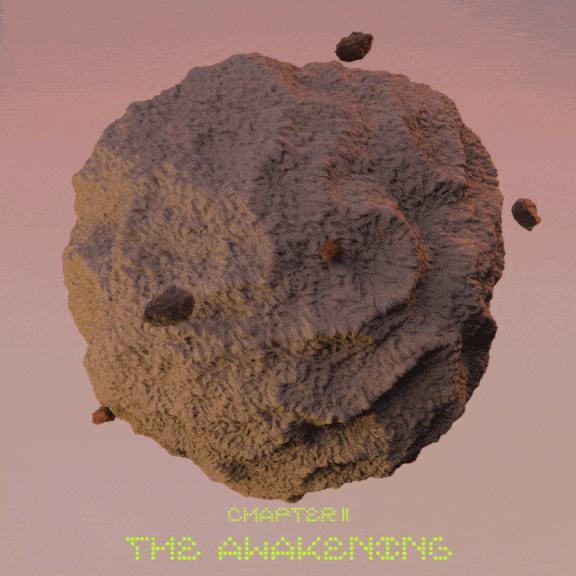
The Awakening invites the player to discover some of the most common inner 'selves', which are defined in Voice Dialogue. By breaking a rock, the player unravels the layers of identity that make up the 'self', and is invited to select one of four 'selves' which they wish to personify.
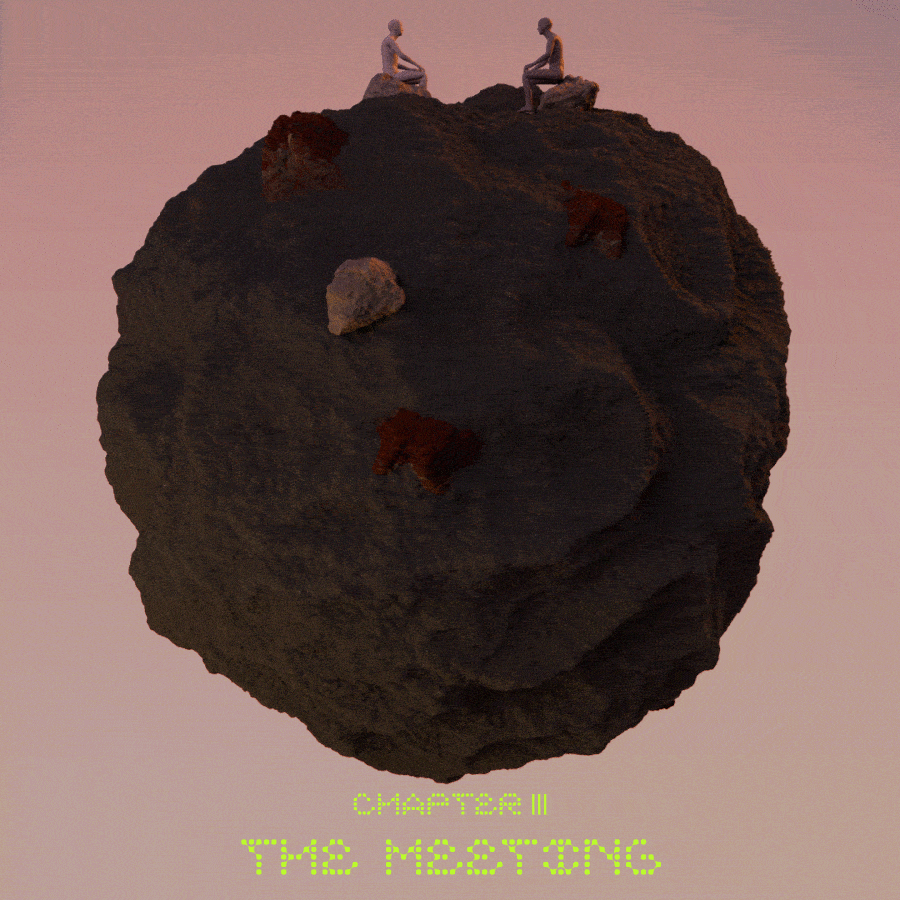
The Meeting introduces the encounter between the selected 'self' and its opposite. Via role play, the player can switch between polar identities of a 'self', answering prompted questions from either perspective to gain greater awareness about the role of this 'self' in their own life.
The gamification of our mental healthcare has the
potential to shift our perception and contribute to
prevent us from numbing our deepest concerns, by
helping to assimilate and learn a new psychological
methodology without systematically having to sorely
embrace it.

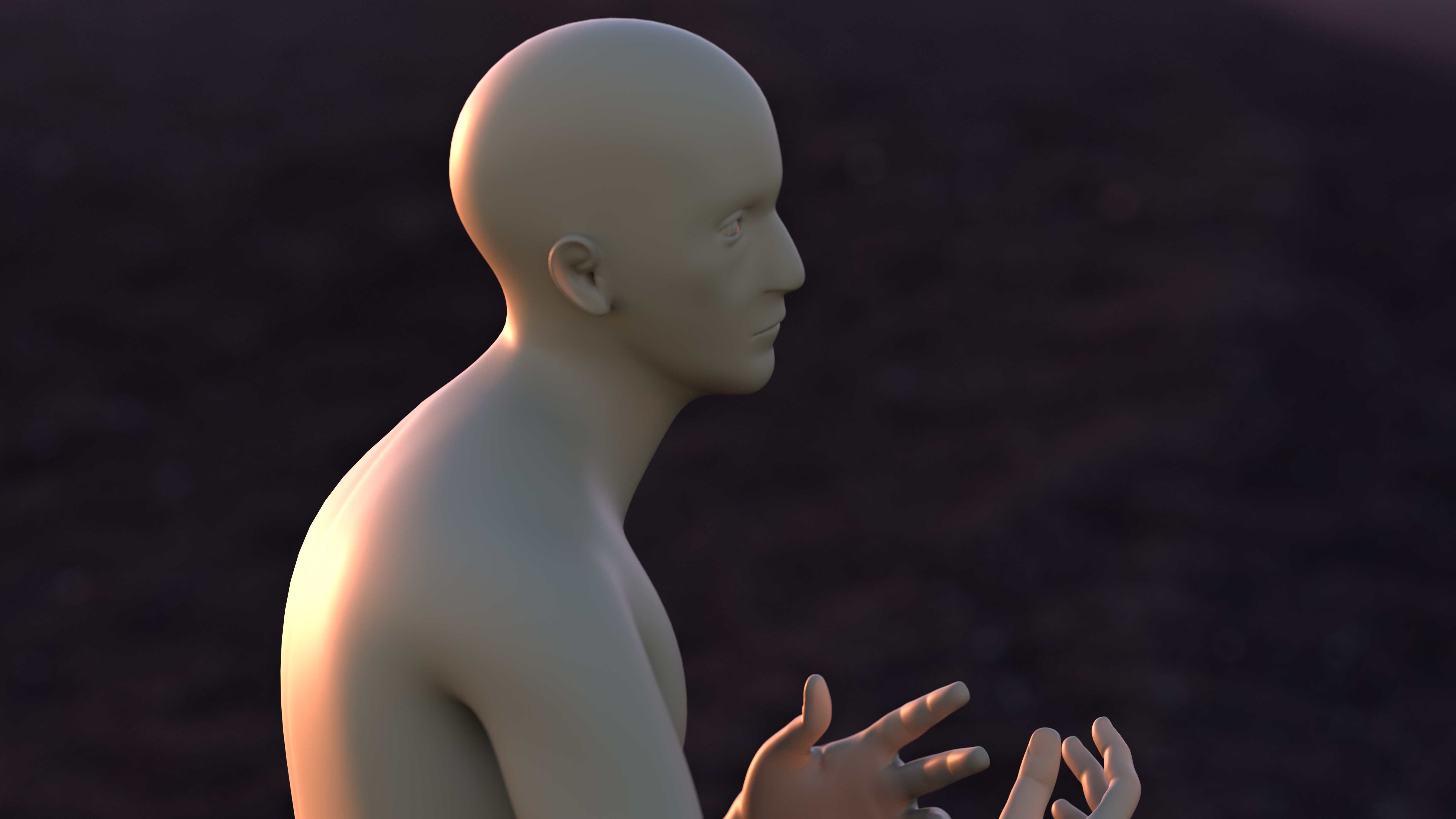

"Research shows that distanced self-talk helps people regulate negative emotions, reason wisely and perform better under stress."
- Kross, E. (2021) ‘Op-ed: Why Being Introspective is a Double-Edged Sword’. Los Angeles Times, 6 February.
The use of video games stands out not only because of
their widespread accessibility, but also because they
entice you to play regularly. Having the possibility for an
individual to access such a tool, at any time of the day,
can help them to better manage and cope with their
emotional distress.

